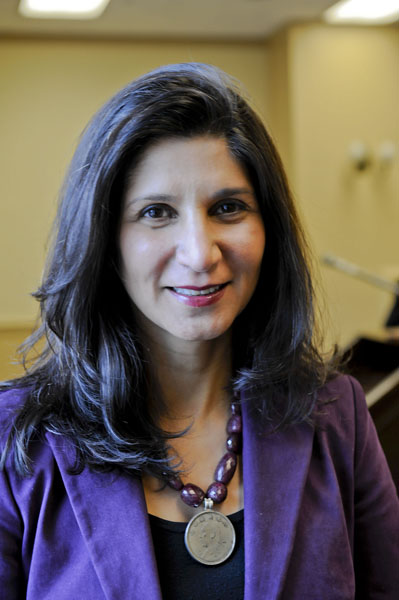(RNS) As my kids have grown into teenagers, their behavior has changed. My daughter is less interested in hanging out with me and prefers sitting in her room glued to her computer. My son plays Nintendo war games. When current events are discussed in our home, we sometimes disagree vehemently. According to Homeland Security adviser Lisa Monaco, I should be on my guard because these might be signs that my kids are about to head off to join the Islamic State.
Sounds absurd, right? But that’s the message to Muslim communities as part of the administration’s initiative to “counter violent extremism.”
In September, the Justice Department announced it was launching the program and piloting it in Boston, Los Angeles and Minneapolis. The stated aim was to bring together community, religious leaders and law enforcement to “develop comprehensive local strategies and share information on best practices” for countering violent extremism. Although the initiative doesn’t mention the word “Muslim,” those adherents are clearly the targets. The secretary of the Department of Homeland Security has promoted it to Muslim communities across the country. It has the support of the White House, which is hosting a summit on the topic this week.
Clothed in the language of community policing, the effort sounds like a kinder, gentler alternative to the well-documented surveillance of American Muslims. But it’s unlikely to engender useful results because it’s founded on the same faulty premise — that there are obvious signs that a person is about to become a terrorist. It also risks placing Muslim youth on watch lists for normal teenage behavior.
Like its previous iterations, the current initiative seems to be premised on the disproven theory that there are discernible pre-terrorism indicators in everyday behavior. The Federal Bureau of Investigation and the New York City Police Department have created lists of behavior that they think indicate someone is heading toward terrorism in the name of Islam: going to the mosque, wearing traditional religious clothing, participating in Muslim social or political groups, even growing a beard. This is all nonsense.
These so-called indicators of terrorism have long been discredited by empirical studies. There is no profile of someone who will become a terrorist and no reliable way to predict who will turn to violence.
Now, the administration is embracing another untested theory: that parents will be able to tell when their children are in danger of becoming terrorists. In some cases, of course, parents might legitimately be concerned about their child. But there’s a big difference between suspicion that your son is about to commit a crime and worrying that he seems distant and disengaged.
Social workers, teachers and others charged with countering violent extremism will also be asked to judge whether somebody is likely to become a terrorist. While some of the factors identified as relevant make sense (for example, a significant history of violent behavior), most are commonplace in a wide swath of young people. Feeling “unjustly treated,” “withdrawn” and having “no connection to group identity” pretty much describes my teenage years.
The current initiative is not just pointless; it may be harmful. By pulling in teachers and social workers, it expands the pool of agencies that relate to Muslims only in terms of security.
A similar approach was tried in England, where a program named “Prevent” required teachers and social workers to identify kids they considered to be “cognitive radicals” so those youths could be given “mentoring and tailored interventions” to divert them from their extremist ideas. While Prevent still limps along, it’s hardly a model of success.

Faiza Patel is co-director of the Liberty and National Security Program at the Brennan Center for Justice at NYU School of Law. Photo courtesy of Brennan Center for Justice
If the government really wants to partner with Muslim communities, it should tell them about the difficulty of distinguishing between a troubled teen and a potential terrorist. It should address their concerns about ensuring that programs won’t target speech and belief. Rather than simply saying that these programs won’t be used to spy, the agencies involved should share the policies and procedures that ensure that community outreach and intelligence work will be kept separate. They should also make clear when they will move from outreach to prosecution.
While everyone can agree that preventing terrorism is a priority, the government should embrace truth and transparency to build relations with Muslim communities rather than pushing unproven psychobabble.
(Faiza Patel is co-director of the Liberty and National Security Program at the Brennan Center for Justice at NYU School of Law.)
YS/MG END PATEL




